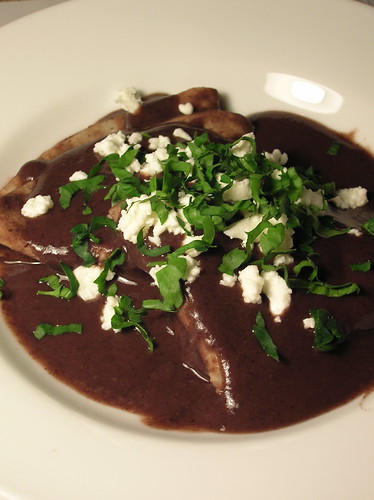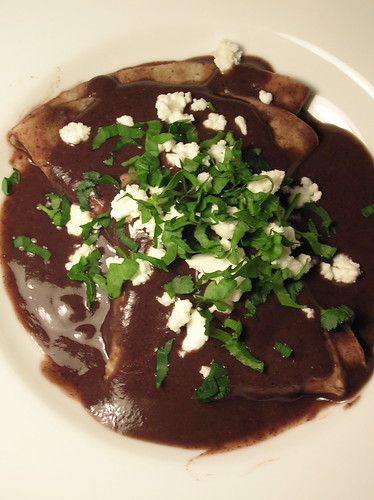
For a short while I taught English in Damascus, where my students consisted primarily of teenagers from upper class Syrian families. The job paid extremely well, but what I liked most about it was how much I learned from the students themselves. Just as they offered me a glimpse into their lives, it soon became clear that what I had to offer them was not just proper pronunciation and subjunctive clauses but a window into another culture.
Their questions were revealing: Do students have to stand up to address their teacher? Do teachers hit the students? What are extracurricular activities? Can a girl meet a guy in a cafe and won't someone see them and tell her parents? Why is 'nature' always singular? Do you take the subway alone in New York?
Among their peers, these kids purported to be experts on America: their English was good, they had seen all the movies, they used the internet, some had traveled abroad. They knew more about Hilary Duff than I did. Yet many of them lacked what mere films cannot convey, an understanding of the multi-dimensionality of such a large and diverse country. Condensed to Hollywood form, America became a land of wonderful freedoms, but also of salacious sexuality, debauchery, and rampant crime. New York and Los Angeles combined to geographic proximity, Dearborn grew in size exponentially.
Whenever I asked my students what they thought the largest immigrant group in the United States was, they always answered Arab. Even on a second questioning, they were positive of their answer. I was always surprised by their lack of knowledge as I explained to them about the current issues of Hispanic immigrants, the past history of Irish and Italians. We talked about 'the melting pot,' but they were still confused by multiculturalism. In a society so grounded in tradition, where people still cite old family names and villages and marriages often rely on family background and dowries, the idea of a Mexican-Filipino love-child was understandably hard to grasp.
Living in a country where the majority of the population is the same ethnicity, being a foreigner becomes something to be remarked on, even pointed out in the street. I truly came to appreciate the multi-culturalism of the United States, how easily we slide between cultures and traditions, eating Chinese one night and French the next; our culinary comforts are just as mixed up as our heritage. Those Mexican, Dominican, Puerto Rican immigrants have added to our culinary landscape, not only introducing us to empanadas and tamales but also as laborers growing so much of the produce we consume.
At the same time, I am often reminded how little I really know about traditional Mexican foods, as when I came across a recipe for enfrijoladas the other day. It turned out to be a wonderful little combination of corn tortillas in a black bean sauce. The bean puree is so simple and good, I scooped every little delicious bit that had crusted to the pan, and was also reminded how good a fresh corn tortilla is. I'm an American with an Argentine name who speaks Arabic and makes French macarons one day and Thai curry the next. And the other day I was eating a Oaxacan brunch dish for dinner. Hooray for diversity.

Enfrijoladas (Tortillas in Black Bean Sauce)
This is a good dish for brunch, alongside a plate of eggs, or as a light supper, when you could pile some shredded chicken or chopped tomatoes on top as well. Try to find the freshest corn tortillas available, check a local Hispanic market or you can even make them yourself. Serves 4.
3 cups cooked black beans
2 cloves garlic
1 tbl lard, or butter
1 tsp cumin
12 corn tortillas (6 inch diameter)
1 cup queso fresco or feta cheese
1 cup minced cilantro
optional: 1 tsp minced serrano chiles, mexican crema
1. If you are cooking the black beans from scratch, you can combine the dried beans with water, garlic, cumin, and lard and simmer for 1 1/2 hours. If you are using canned beans, put the beans with the garlic, lard, cumin, chiles (if using) and ~1 1/2 cups water and simmer about 15 minutes, until the beans are soupy and the garlic soft.
2. Using a blender, puree the beans until very smooth and thick. Return to the saucepan, stir in a bit of salt, and keep warm over low heat.
3. Rub a skillet wih a tiny bit of corn oil. Add the tortillas, one at a time, and heat a few minutes on each side. You just want to warm the tortilas, you don't want them to toast or become stiff. Using tongs, immediately transfer the tortilla to the black bean sauce and turn on both sides to coat. Fold the tortillas into thirds or quarters and place in a serving dish or plate. Continue heating, dipping, and folding the tortillas and placing them on plates, arranging 3 tortillas per plate.
4. Pour the remaining bean sauce over the tortillas on the plates. Sprinkle each with cheese and cilatro, and crema if desired. Serve immediately.
*I want to add that this is a very healthy dish, especially considering how satisfying it is. Corn tortillas are generally low calorie (~30 calories each), the beans have protein and fiber, and feta is a naturally low-fat cheese. About 215 calories per serving.






1 comment:
hello there,
that tortilla dish looks amazing! really making me hungry.
Post a Comment